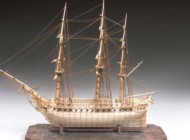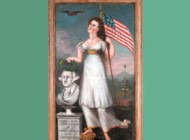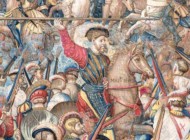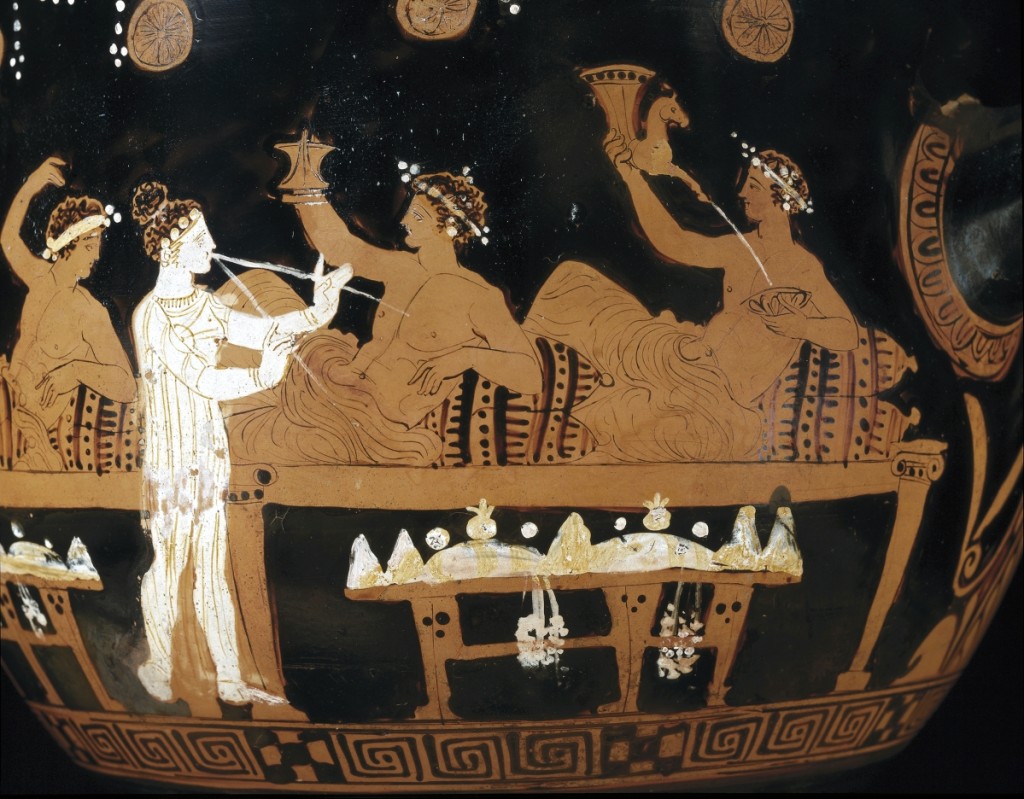
Detail, bell krater depicting a symposium, attributed to the Philocleon Reverse Group, Greek, Attic, circa 390 BCE. Terracotta, red-figure technique. Kunsthistorisches Museum, Vienna. Photo: ©KHM-Museumsverband.
CAMBRIDGE, MASS. – The Harvard Art Museums’ newest special exhibition, “Animal-Shaped Vessels from the Ancient World: Feasting with Gods, Heroes and Kings,” opens September 7 at the Harvard Art Museums’ special exhibition gallery. The exhibition is the first to unite a stunning and varied collection of elaborate animal-shaped vessels spanning continents and millennia. It brings together 75 objects – drinking and pouring vessels as well as related contextual works – from the collections of the Harvard Art Museums and nearly two dozen international lenders.
There will be a free public opening celebration on Thursday, September 6, featuring a lecture at 6 pm by University of Chicago professor Michael Dietler, whose research has focused on alcohol and feasting. All galleries will be open 5 to 9 pm. The exhibition will be on view through January 6.
Offering a glimpse into the symbolism and communal practices that found expression at ancient feasts across the Near East and Mediterranean, the exhibition and its accompanying print publication, online digital feature and rich programming explore the importance of feasting as a social and ritual activity, as a showplace for the effects of cross-cultural exchange and as a driving force behind artistic creativity.
While the songs, speeches and prayers that enlivened ancient feasts are now largely lost to us, many drinking and serving vessels – a surprising number of them in the shape of animals – have survived. Taking animal-shaped vessels as performative props in the multifaceted world of feasting, the exhibition not only introduces the social and ceremonial functions of these ritual occasions, but also highlights the essential and universal role played by food and drink – and by the highly imaginative containers used to consume them.
“Animal-Shaped Vessels” is curated by Susanne Ebbinghaus, the George M.A. Hanfmann curator of ancient art and head of the division of Asian and Mediterranean art.
An online digital feature hosted on the museums’ website provides visitors with expanded multimedia content on the history of feasting and drinking practices in the ancient world, as well as further details on the material history of these one-of-a-kind vessels.
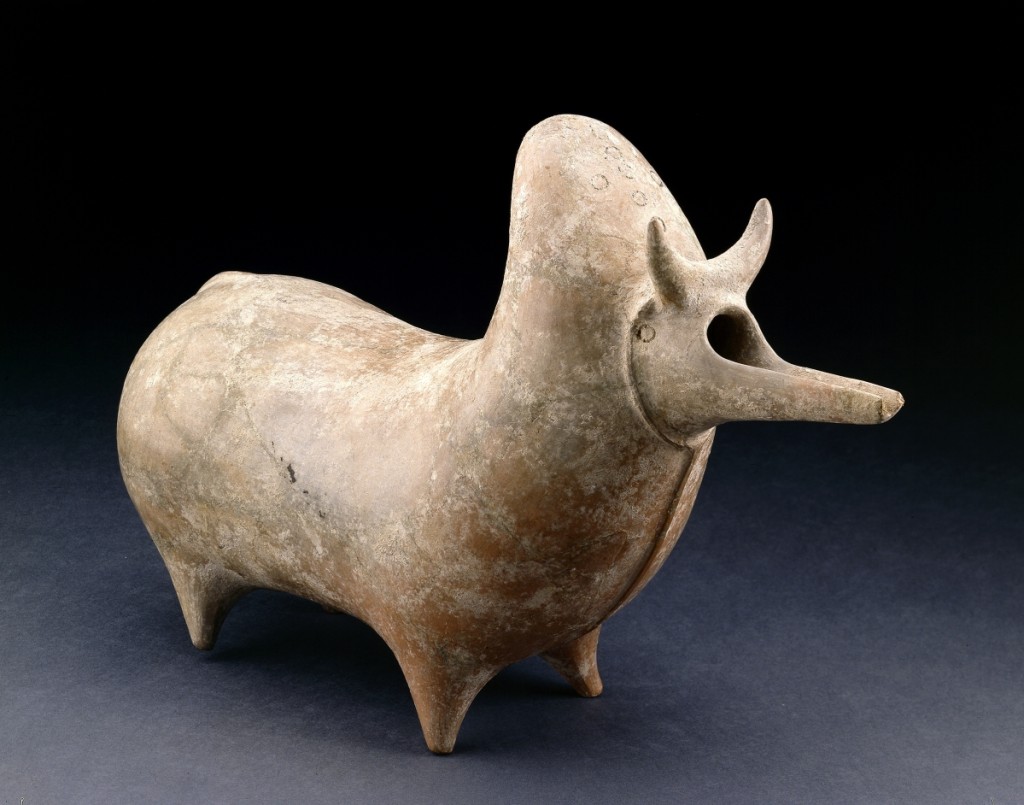
Vessel in the form of a hump-backed bull, Iranian, 1350–1000 BCE. Terracotta. Ashmolean Museum of Art and Archaeology, University of Oxford. Photo: ©Ashmolean Museum of Art and Archaeology, University of Oxford.
A sketchbook produced in conjunction with the exhibition is available for free at the museums’ admissions desk for all families and young visitors. It contains prompts for exploring the show, suggestions for close looking and sketching exercises to encourage visitors’ creativity in designing animal-shaped vessels of their own.
A $325,000 grant from the National Endowment for the Humanities (NEH), supports the presentation of the exhibition, the expense of bringing the objects from international lenders, a range of public programs (lectures, workshops and tours) and the production of the digital feature.
In recognition of the NEH grant, the museums are offering free admission to all visitors on Wednesdays, from 1 to 5 pm, and on the first Saturday of each month, 10 am to 5 pm, throughout the run of the show.
“It is fitting that these varied and well-traveled vessels are intersecting for exhibition at the Harvard Art Museums, a crossroads for works of art from around the globe, from ancient to modern times, all under one roof,” said Martha Tedeschi, the Elizabeth and John Moors Cabot director of the Harvard Art Museums. “By illuminating the history and making of these remarkably global objects, we invite our guests to raise a glass to what unites us across culture and time.”
Ebbinghaus added, “I am excited about this unique opportunity to unite such a large selection of animal-shaped vessels from more than 20 museums in both the United States and abroad.” The exhibition grew out of Ebbinghaus’s longtime research interests. “Most of these vessels are old friends to me, but I have never seen them together,” she said. “As a group, they allow us to discern similarities and differences in artistic forms, and as witnesses to ancient feasts in many different cultures, from Greece to China, they give us a glimpse into a variety of feasting traditions.”
Harvard Art Museums are at 32 Quincy Street. For further information, 617-495-9400 or www.harvardartmuseums.org.









